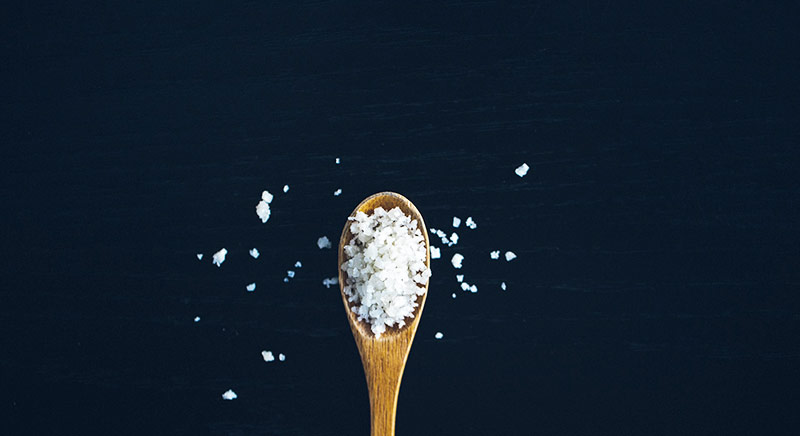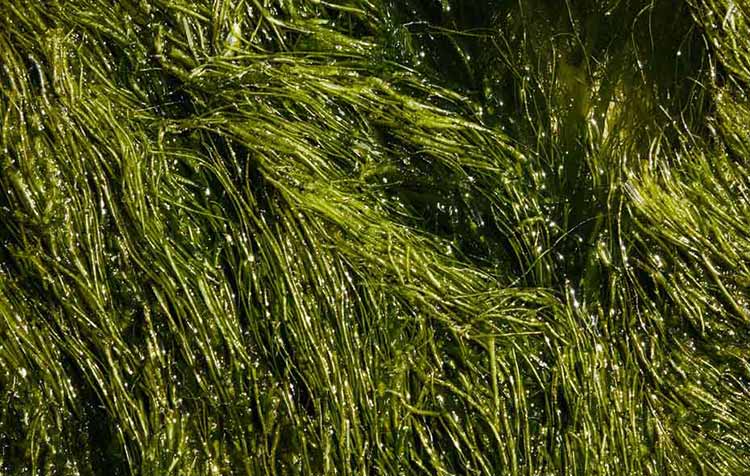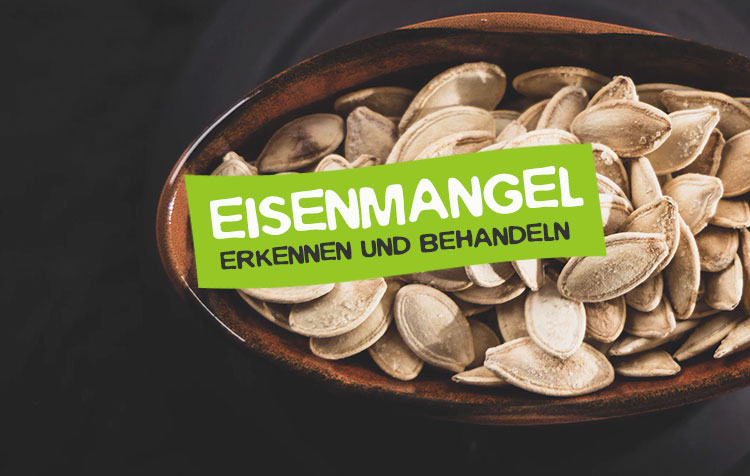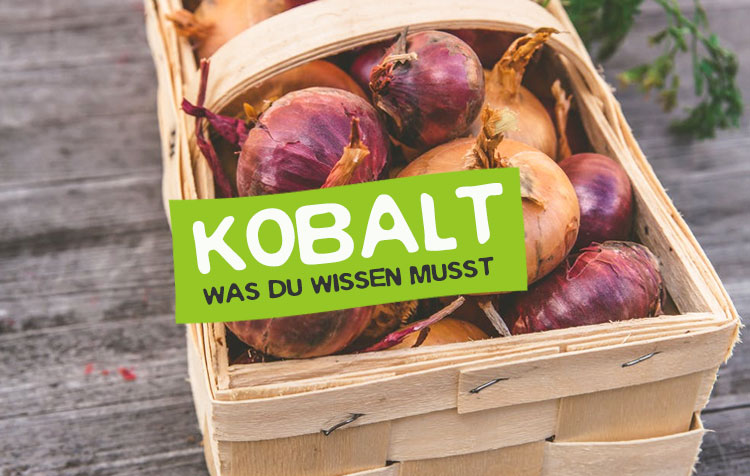You want to know more about the trace element iodine? Then you will find what you are looking for here. We start with a fact sheet and continue with intake, daily requirement, importance, overdose, deficiency, test variants and possibilities to cover the daily requirement. In addition, you will find information about the iodine supply in a plant-based diet and which forms of dietary supplements can be useful.
Here is in advance a short Overview for you:
Notice: This article is not a substitute for medical advice, but merely provides general information about iodine. Please consult your doctor if you feel unwell or want to prevent health problems with medical care.
Iodine STECKBRIEF at a glance
Assignment: Trace element, in the periodic table part of the halogens
Synonyms: Iodine, older names are iodium, iodine and iodina
Important for: Co-factor for the thyroid gland, brain development, bone formation
Daily requirement: 200 µg per day from 13 to 50 years of age, 180 µg per day thereafter.1
Recording: through food intake or dietary supplements
Overdose: Possible due to excessive consumption of certain algae or dietary supplements.
Deficiency symptoms: Among other things, impaired thyroid function
Food: certain algae, iodized salt
Nutritional supplement: As powder, tablets, capsules or drops
How to ingest iodine?

The trace element iodine is repeatedly associated with the Thyroid Health associated. European soils are said to be very low in iodine and therefore few plants contain significant amounts of iodine. Meat and dairy products can contain significant amounts of iodine, but only if the animals are fed iodized feed. Unfortunately, it is rather rare to find accurate information about this, so that Iodine supply from animal products is currently rather unreliable and difficult to plan. is.
So how can you take in iodine? In order to cover the daily iodine requirement, some types of algae, iodized salt and, if necessary, dietary supplements are suitable. You can find more information about the different types of algae in the chapter Foods.
What is the daily requirement of iodine?
According to the German Nutrition Society (DGE), the daily iodine requirement is graded according to age. Therefore, I have a clear table for you here:
| Age | Recommended intake in µg |
| 1 to under 4 years | 100 |
| 4 to under 7 years | 120 |
| 7 to under 10 years | 140 |
| 10 to under 13 years | 180 |
| 13 to under 51 years | 200 |
| 51 years and older | 180 |
| Pregnant | 230 |
| Breastfeeding | 260 |
With iodine, however, it is by no means the case that a lot helps a lot. It is much more the case that there is a range that is beneficial to health. More about the maximum iodine intake you will find in the chapter Overdose. Basically, it should also be said about reference values that they fluctuate depending on the institution and can always only be a guideline value, as each person is individual. The reference values are based on current studies and assumptions, which may of course also change in the future.
What is the importance and function of iodine in the body?
Iodine is crucial in the body to ensure that the Thyroid gland produce hormones can. These hormones influence the human Metabolismwhich can falter in the event of an iodine deficiency.2 These are the hormones triiodothyronine (T3), which is the active form - and thyroxine or tetraiodothyronine (T4), which is the storage form. A selenium-dependent enzyme called deiodase is required to convert the storage form to the active triiodothyronine. Triiodothryonine affects the metabolism, the Protein synthesis at the cell level, as well as a healthy brain and bone development off.
At the same time, however, it should be said that many more Nutrients such as iron or the already mentioned selenium for deiodase make an essential contribution to thyroid health and performance. Hypothyroidism can therefore not be caused exclusively by an iodine deficiency, but can have several causes.
The Iodine functions at a glance:
- Hormone production in the thyroid gland
- Protein synthesis at the cellular level
- Healthy brain and bone development
- Supports blood formation
- Optimizes energy, homocysteine and folic acid metabolism
- Supports the formation of messenger substances in the nervous system
Is B12 overdose possible?
As already mentioned, there is not only a recommended minimum intake for the trace element iodine, but also a maximum recommended daily intake. This maximum intake is called the Tolerable Upper Intake Level (UL). The European Food Safety Authority (EFSA) recommends limiting iodine intake to a UL of 600 µg per day.3
An even higher UL is set at 1,100 µg of iodine per day by the National Institutes of Health.4 Personally, I would recommend that you rather orientate yourself to the recommended daily intake and above all listen to your own body sensation. Especially in the area of nutrition, you are often your own best doctor and can sense which foods are good for you and which you don't tolerate so well.
Such high iodine intakes of 600-1,000 µg per day are possible especially when eating certain types of algae. Furthermore, it is also possible through a excessive iodine supplementation an overdose may occur. With iodized salt, on the other hand, the iodine content of 20 µg per gram of salt is too low for normal salt use to exceed the upper limits mentioned.5
Symptoms of overdose: including nausea, vomiting and fever.
When does iodine deficiency occur?
Iodine deficiency occurs when less iodine is supplied to the body through the diet than the body needs for its processes. The first symptoms are rather less specific, such as. Fatigue, concentration problems or low moods. Therefore, I recommend regular blood tests to detect potential deficiencies at an early stage. Which value is the right one to detect your iodine balance, you will find in the chapter Tests.
Basically are Vegans and vegetarians more at risk of iodine deficiencybecause iodine is mainly found in animal products. However, this is not because animal products contain iodine per se, but because the animals are supplemented with iodine via feed and thus accumulate it.6 Likewise Smokers particularly at riskThe thiocynate contained in the smoke inhibits iodide transport.
Which tests are suitable to determine the iodine status?
Two tests are suitable for determining the iodine status. On the one hand the Excretion of iodine through urine and on the other hand the TSH value. The TSH value is used to determine thyroid function. TSH stands for thyroid-stimulating hormone. This hormone is added to the blood as needed to stimulate hormone production in the thyroid gland. Sometimes the value is also called TSH basal.
Iodine excretion should be between 100 and 200 µg/l with a good supply. A slight deficiency is present if the excretion is below 100 µg/l. To be honest, these values made me a bit puzzled, since a healthy person excretes between 1.5 and 2 liters of urine per day, which would mean an iodine excretion of about 200-300 µg per day. This is already above the recommended daily intake. However, I have not been able to find any further info on this.
The right test: If you suspect hypothyroidism or iodine deficiency, I would recommend getting both values and discussing them with your doctor.
What foods contain iodine?
As already mentioned, iodine is found mainly in animal products, iodized salt and seaweed. Therefore I will give you here some seaweed and list their iodine content per one gram dry weight:
- Kombu/Kelp (average 1,500 μg per 1 gram)
- Dulse (average 173 μg per 1 gram)
- Wakame (average 160 μg per 1 gram)
- Nori (average 35 μg per 1 gram)
For comparison: iodized salt contains 20 µg per gram and is thus clearly behind the algae mentioned. Finally, due to the high iodine content of algae, cod is also a rich source of animal iodine with about 120 µg per 100 grams. Apart from that, it should be said that the values for some algae are subject to quite large ranges. For example, kombu/kelp can contain between 500 and 11,000 µg of iodine per gram.
What do vegans and vegetarians have to consider regarding iodine?
The DGE classifies iodine as potentially critical nutrient in vegan diet.7 This is mainly due to the fact that iodine is mainly ingested via animal products. However, it is also possible to meet the iodine requirement in a balanced plant-based diet if algae are regularly integrated into the diet.
Find the right iodine supplement
As already mentioned, you can use seaweed to effectively and fully integrate iodine into your diet. For example, you can simply mix small amounts of dulse into a smoothie. The taste is not noticeable at all. By the way, microalgae such as chlorella or spirulina contain far less iodine than the above-mentioned seaweed and therefore only contribute a small part to covering your iodine requirements.
Basically, I only recommend supplementing iodine if you have an iodine deficiency because the daily requirement cannot be met by diet alone. Therefore you should take a blood test before supplementation and discuss it with your doctor. An excess of iodine can also lead to hypothyroidism, as can a mild iodine deficiency.8
If you want to supplement iodine, you can find iodine in various forms such as. Powder, capsules, tablets or drops. If you're on a plant-based diet and want to make sure you're meeting your daily needs for potentially critical nutrients like iron, zinc, or iodine, I can recommend the vegan multinutrient supplement:
- The Iodine capsules you get here*
- The Multi-nutrient preparation you get here*
Secure the iodine supply
Iodine is probably one of the most critically considered nutrients. This is mainly due to the fact that there are very different positions on the nutrient. Therefore, you should also critically question scientific studies, as they are sometimes subject to false assumptions and can thus produce flawed or misleading results.
Through regular blood tests, you can check your values together with your doctor and if necessary diet-related diseases avoid. Otherwise, as always, it's helpful to listen to your body's signals and eat varied and to feed wholefood.
Do you have any questions or suggestions about this post on iodine? Then feel free to write me a comment.
All the best,

PS.: You want to know, why we live vegan? Check out the linked article to learn our reasons! And if you want to learn more about other nutrients, then feel free to take a look next at the posts about Salutogenesis or Vitamin D.
References:
1 Deutsche Gesellschaft für Ernährung e. V.: Iodine, https://www.dge.de/wissenschaft/referenzwerte/jod/?L=0. [23.05.2021].
2 Zentrum der Gesundheit: Covering iodine requirements - healthy and vegan,
https://www.zentrum-der-gesundheit.de/ernaehrung/ernaehrungsformen/vegane-ernaehrung/jodbedarf-decken-ia. [23.05.2021].
3 European Food Safety Authority: Tolerable Upper Intake Levels for Vitamins and Minerals, https://www.efsa.europa.eu/sites/default/files/efsa_rep/blobserver_assets/ndatolerableuil.pdf, [23.05.2021].
4 National Institute of Health: iodine, https://ods.od.nih.gov/factsheets/Iodine-HealthProfessional/, [05/23/2021].
5 G. Jahreis, M. Leiterer, A. Fechner: Iodine deficiency prophylaxis through proper nutrition: the contribution of milk, sea fish and iodized salt to the iodine supply in Germany, https://www.researchgate.net/publication/263460391_Jodmangelprophylaxe_durch_richtige_Ernahrung_Der_Beitrag_von_Milch_Seefisch_und_Jodsalz_zur_Jodversorgung_in_Deutschland, [23.05.2021].
6 N. Rittenau (2018): Vegan-Klischee ade! Scientific answers to critical questions about vegan nutrition. VENTIL Publishers.
7 Deutsche Gesellschaft für Ernährung e. V.: Supplement to the position of the German Nutrition Society on vegan nutrition with regard to population groups with special nutritional needs, https://www.dge.de/wissenschaft/weitere-publikationen/dge-position/vegane-ernaehrung/?L=0, [27.05.2021].
8 A. M. Leung, L. E. Bravermann: Consequences of excess iodine, https://www.ign.org/rp.htm?cmsaction=get_document&page_id=142002953, [May 27, 2021].





